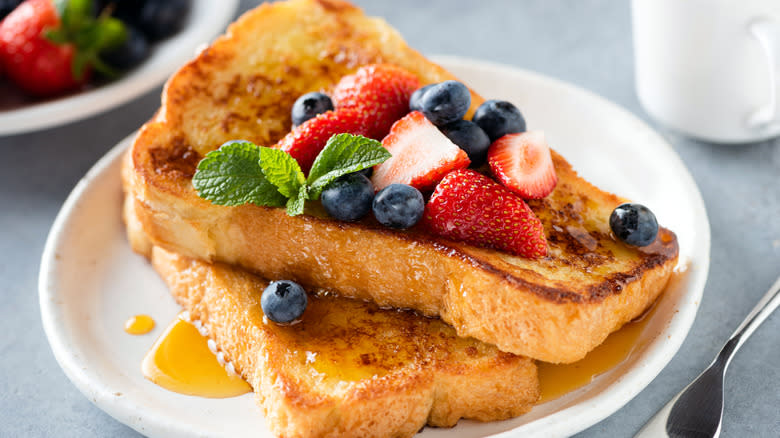Potassium is an essential mineral that plays a vital role in maintaining a healthy body. It helps in controlling the nerves and muscles’ functioning and maintaining a healthy balance of fluids in the body. A diet that includes potassium-rich beverages can help reduce blood pressure levels, decrease the risk of stroke, and facilitate kidney health. Join us as we explore the top drinks loaded with this nifty nutrient.
Frequently overlooked, potassium is equally as important as other widely recognized minerals like calcium or iron. Yet, many people fail to consume the recommended daily intake. Drinking beverages rich in potassium is an effective way to increase your uptake.
It’s not just about the quantity of potassium; the quality of your sources matters too. Not all drinks are created equal, and some are far more beneficial than others. We’re here to steer you towards the best options.
In this article, we’ll lay out the benefits of potassium, explain how it contributes to overall wellness, and divulge our top picks for potassium-rich drinks. Whether you’re looking to compensate for a deficiency or simply striving for a healthier lifestyle, discovering these beverages is a step in the right direction.
Uncover the Best High-Potassium Drinks for a Balanced Diet
Potassium is an essential mineral that helps regulate blood pressure, control water balance in the body, and ensure proper function of muscles and nerves. Consuming enough potassium-rich foods and drinks can contribute to maintaining a healthy and balanced diet. Here, we will uncover some of the best high-potassium drinks that you can incorporate into your diet.
Milk
Milk is a great source of potassium, with about 300-400 milligrams in a one-cup serving. The potassium in milk can help maintain proper fluid balance and muscle function. Opt for skim or low-fat milk to get the most nutritional benefits.
- Skim milk: 382 milligrams of potassium per cup
- Low-fat milk: 366 milligrams of potassium per cup
Orange Juice
Orange juice is not just rich in vitamin C, but it’s also packed with potassium. One cup of orange juice can provide over 470 milligrams of potassium. Not only is orange juice a refreshing and delicious drink, but it’s also a handy way to improve your intake of important nutrients.
- Pure orange juice: 496 milligrams of potassium per cup
It is important to remember that while these drinks can help increase your potassium intake, nothing can replace the need for a balanced diet full of fruits, vegetables, lean proteins, and whole grains. Be sure to drink these high-potassium drinks in moderation and aim to get your nutrients from a variety of sources.
- Beetroot Juice: Beetroot is known for its high potassium content. A cup of beetroot juice delivers about 518 milligrams of potassium.
- Coconut Water: Coconut water is renowned for its hydration capabilities and it’s also packed with potassium–a 240ml serving of fresh, pure coconut water contains about 600 milligrams of the mineral.
How much potassium you need can depend on several factors, including your age, sex, and overall health. Nevertheless, incorporating these high-potassium drinks into your diet can be a simple and delicious way to help meet your daily nutritional needs.
The Importance of Potassium in Your Daily Diet
Potassium is an essential nutrient required for various bodily functions. It contributes to the maintenance of normal physiological functions and plays a crucial role in the human body. Here are some reasons why potassium is crucial for us.
- Regulation of Fluid Balance: Potassium helps maintain fluid balance in the body which is important for a variety of bodily functions including the transmission of nerve signals and the contraction of muscles.
- Control of Electrical Activity of the Heart: Potassium enables the heart to beat in a regular rhythm. A diet low in potassium can lead to arrhythmias or abnormal heart rhythms.
- Maintenance of Blood Pressure: Potassium can counteract the effects of excess sodium, thus helping to prevent or control high blood pressure. A diet rich in potassium helps keep the level of sodium within permissible limits.
- Preservation of Bone Mineral Density: Increased potassium intake has been linked with high levels of bone mineral density, which is important for overall bone health.
- Promotion of Kidney Health: Higher potassium intake can lower the risk of kidney stones. Potassium helps decrease calcium excretion, reducing the likelihood of kidney stone formation.
Insufficient intake of potassium could lead to several health impairments including muscle weakness, fatigue, heart palpitations, and constipation. A well-balanced diet rich in fruits and vegetables, lean meats, and dairy products can provide sufficient potassium in the body.
Some drinks, like coconut water, orange juice, beet juice, and milk are high in potassium and can be included in your diet. Remember, a well-balanced and varied diet will ensure you receive an adequate amount of potassium and other essential nutrients every day.
Definition of High Potassium Drinks
Potassium is an essential mineral the body requires for a variety of vital functions, including maintaining proper heart and kidney function. High-potassium drinks are beverages rich in this mineral. They are often recommended for those looking to replenish their potassium levels and maintain a balanced diet.
It is important to note that the U.S. Food and Drug Administration classify a food high in any vitamin or mineral if it contains 20% or more of the Daily Value (DV) of that nutrient per reference amount. Hence, a high-potassium drink should contain 20% or more of the DV for potassium per reference amount.
Examples of High-Potassium Drinks
The following table provides examples of high-potassium drinks along with their average potassium content:
| Drink | Potassium Content per 100 ml |
|---|---|
| Orange Juice | 200 mg |
| Coconut Water | 250 mg |
| Milk | 150 mg |
| Tomato Juice | 229 mg |
| Vegetable Juice | 469 mg |
By incorporating these high-potassium drinks into your diet, you can better achieve your daily nutritional needs. However, people with kidney problems or certain other conditions may need to limit their intake of potassium. Always check with your healthcare provider first if you need to make significant changes to your diet.
How Dietary Drinks Boost Potassium Consumption
Potassium is a crucial mineral required for various bodily functions such as muscle contractions, nerve transmissions, and keeping your heartbeat regular. The typical adult needs approximately 4,700 milligrams of potassium per day. Dietary drinks can help up your potassium intake effectively.
Advantages of Dietary Drinks
Dietary drinks, such as fresh fruit juices and smoothies, are excellent sources of potassium. They not only help in the absorption of the mineral but also make your diet more appetizing:
- High Potassium Content: dietary drinks made with fresh fruits and vegetable like oranges, bananas, spinach, and avocados, are naturally high in potassium.
- Ease of Digestion: Dietary drinks are often easier to digest than solid food items, aiding in quicker absorption of nutrients, including potassium.
- Variety: There are numerous dietary drinks options available. Mixing and matching fruits and vegetables can provide a variety of flavors while offering diverse nutrients.
Popular Dietary Drinks High in Potassium
Below are a few dietary drinks known for their high potassium content:
- Orange Juice: a 240-milliliter glass of orange juice contains around 496 milligrams of potassium.
- Coconut Water: Known as mother nature’s sports drink, a cup of coconut water contains roughly 600 milligrams of potassium.
- Carrot Juice: a 240-milliliter serving of carrot juice provides approximately 689 milligrams of potassium.
- Tomato Juice: a 240-milliliter glass of tomato juice offers around 527 milligrams of potassium.
In conclusion, dietary drinks present an easy and delicious method to increase your potassium intake. As always, moderation is key, and it’s best to consume these drinks as part of a balanced diet.
The Prominent Role of Fruit Juices in Increasing Potassium Levels
Potassium is an essential nutrient used to maintain fluid and electrolyte balance in the body. It’s also the third most abundant mineral in the body and a required mineral for the function of several organs, including the heart, kidneys, brain and muscular tissues. One way to ensure that you are getting sufficient potassium is through your diet. Fruit juices are a rich source of this important mineral.
Best Fruit Juices for Potassium
There are many fruit juices that can contribute to your daily intake of potassium. The following table shows the top fruit juices known to be high in potassium alongside their regular serving size and the respective potassium content:
| Fruit Juice | Serving Size | Potassium Content |
|---|---|---|
| Orange Juice | 1 cup (8 oz) | 496 mg |
| Tomato Juice | 1 cup (8 oz) | 527 mg |
| Prune Juice | 1 cup (8 oz) | 707 mg |
| Grapefruit Juice | 1 cup (8 oz) | 400 mg |
| Apricot Nectar | 1 cup (8 oz) | 752 mg |
While fruit juices can most certainly boost your potassium intake, it’s important to consume them in moderation considering the high sugar content found in most prepackaged juice products.
Homemade Potassium-Rich Juices
Making your own juice at home is an effective way to control the sugar content while ensuring a high potassium intake. Here are a few juice combinations loaded with potassium that you can try at home:
- Orange, Banana and Spinach: This juice contains three powerhouse ingredients that contain a substantial amount of potassium.
- Tomato, Celery, and Cucumber: This juice not only increases your potassium levels but also helps keep you hydrated.
- Apple, Beet, and Carrot: With apple providing refreshing taste, beet and carrot ensure you get a significant potassium boost.
In conclusion, whether it’s ready-made or homemade, fruit juices can play a prominent role in increasing your daily intake of potassium, contributing to overall health and well-being.
Mineral Water Brands Rich in Potassium
Being adequately hydrated is essential for overall health. People need to consume a certain amount of water daily, and one way to do this is by drinking mineral water. But aside from hydration, did you know that certain brands of mineral water are a good source of dietary potassium too? Here we list prominent mineral water brands which are known to be rich in potassium.
- Gerolsteiner
Gerolsteiner is a globally recognized mineral water brand originating from Germany. It offers a significant amount of nutritional minerals including a high potassium content. This brand is a perfect choice to supplement your dietary need for potassium.
- San Pellegrino
San Pellegrino is an Italian mineral water brand which is famous for its effervescence and high mineral content. This brand’s mineral water contains an appreciable amount of potassium which can greatly benefit those who have potassium insufficiency.
- Contrex
Contrex is a French brand that is well known for its high mineral content, specifically potassium. It is an excellent choice if you are looking to increase your potassium intake through mineral water.
- Evian
Evian is yet another brand offering mineral water rich in potassium. This French brand is globally available and provides a good source of potassium in addition to its refreshing taste.
Remember, while these mineral water brands can supplement your potassium intake, they should not replace the consumption of potassium-rich foods. It is always recommended to have a balanced diet that includes a variety of nutrients.
Homemade Drinks High in Potassium
When it comes to maintaining a balanced diet, it’s important to include foods and drinks rich in essential nutrients. One of these key nutrients is potassium, which aids in muscle contractions, nerve transmissions, bone health, water balance, and helps lower blood pressure. Here are some easy-to-make homemade drinks that are high in potassium.
1. Banana Smoothie
Bananas are known for their high potassium content. A banana smoothie not only makes for a delicious breakfast option or a post-workout snack, but it’s also a quick and easy way to increase your potassium intake.
2. Orange Juice
Apart from vitamin C, oranges are also packed with potassium. Making homemade orange juice ensures that you get all the potassium without any unwanted sugars and preservatives.
Below is a table showing the potassium content in these homemade drinks:
| Homemade Drink | Potassium Content per Cup (milligrams) |
|---|---|
| Banana Smoothie | 422mg |
| Orange Juice | 496mg |
Whether you’re looking to supplement your diet or trying to meet a potassium deficiency, these simple homemade recipes will provide you with a nutrient-rich treat to enjoy throughout your day.
Health Implications of Low Potassium Intake
Potassium isn’t just a nutrient; it’s a necessary part of your daily diet. Having an inadequate intake of potassium can lead to a number of health problems. Potassium helps with muscle function, maintains the balance of body fluids, supports nerve function, and aids in the digestion of carbohydrates and proteins.
Consequently, low levels of potassium, known medically as hypokalemia, can lead to various health issues, both minor and serious. People with low potassium intake may experience symptoms such as fatigue, muscle cramps, irregular heartbeat, and digestive issues.
Prolonged deprivation of potassium may cause severe health implications including kidney disease, high blood pressure, heart disease, stroke, arthritis, cancer, digestive disorders, and infertility. It is therefore important that the issue of low potassium intake is treated seriously and acted upon promptly.
It is advisable to maintain a balanced diet, rich in foods high in potassium like fruits, vegetables, and dairy products. Alternatively, there are various potassium-enriched drinks available in the market that can help replenish levels and avoid the associated health risks of low potassium intake. Consult with a registered dietitian or a healthcare provider for personalized advice regarding your potassium needs.
In conclusion, monitoring and maintaining the adequate intake of potassium in your diet is not just beneficial, but crucial for overall health and wellbeing.
FAQ: What drink is high in potassium
Why is it essential to get enough potassium in the diet, and what are the potential health benefits?
Potassium is a crucial mineral that supports heart health, regulates blood pressure, and helps in muscle function. A diet rich in potassium helps to counteract the effects of high sodium, which can contribute to hypertension, thus reducing the risk of heart disease and stroke.
Can you list some foods that are high in potassium, exceeding the content found in the well-known potassium source – bananas?
Several foods contain more potassium than a banana. For instance, sweet potatoes, white beans, and avocado are all high in this mineral. Notably, a medium sweet potato contains 728 mg of potassium, which significantly exceeds the 422 mg found in a medium banana.
How does high potassium intake contribute to maintaining heart health?
Potassium helps maintain a healthy heart rhythm, manage blood pressure by offsetting the effects of high sodium, and reduce the risk of heart disease by minimizing the contributing factors to cardiovascular complications. High potassium levels in the diet support overall cardiovascular health.
Apart from being high in fiber and vitamin A, what makes sweet potatoes an excellent source of potassium?
Sweet potatoes are also rich in potassium, with a large sweet potato providing around 728 mg of potassium. This makes them one of the superior sources of potassium, instrumental in balancing sodium levels in the body and supporting heart health.
What are some common foods that are not only high in Vitamin C but also high in potassium?
Foods high in both vitamin C and potassium include oranges, strawberries, and kiwi. For example, one medium orange offers 237 mg of potassium per serving, and it’s also high in vitamin C, making it an excellent choice for immune support and electrolyte balance.
Can consuming too much dried fruit with added sugar impact potassium levels in the body?
While dried fruit is a convenient source of nutrients, including potassium, it often contains high levels of added sugar, which can lead to increased calories and impact blood sugar levels. However, the potassium content remains beneficial. It’s important to consume dried fruit in moderation and maintain a balanced diet to manage potassium levels effectively.
For individuals concerned about their sodium intake due to high blood pressure, how can increasing foods that are high in potassium in their diet be beneficial?
Increasing the intake of foods high in potassium can help to counterbalance the effects of high sodium, which is often responsible for elevated blood pressure. Potassium helps relax blood vessels, decrease blood pressure, and reduce the risk of heart disease.
Are there vegetables that are also high in potassium, apart from fruits and beans?
Yes, several vegetables are also rich in potassium. Spinach, for instance, not only contains high levels of Vitamin K, magnesium, and fiber but also boasts about 839 mg of potassium per cup, making it one of the highest in potassium among vegetables.
How much potassium is recommended daily, and why is it necessary to maintain this intake?
The recommended daily intake of potassium for the average adult is around 4,700 milligrams. Consistent intake is necessary to regulate fluid balance, nerve signals, and muscle contractions. It’s also pivotal in reducing high blood pressure, protecting against stroke, and preventing osteoporosis and kidney stones.
If someone doesn’t like bananas, which are well-known for being high in potassium, what are some alternative fruits that can help them get enough potassium?
There are several fruits high in potassium that can be enjoyed as alternatives to bananas. These include avocados, which contain 708 mg per serving, and oranges, with 237 mg. Kiwis and apricots are also high in potassium and offer a range of other health benefits.
Why is it important for individuals to understand that potassium is a mineral necessary for human health?
Potassium is a mineral that plays a vital role in maintaining proper nerve and muscle functions, regulating fluid balance, controlling the electrical activity of the heart, and managing blood pressure. Recognizing its significance helps individuals prioritize the intake of potassium-rich foods for overall health stability.
What effects of potassium should health-conscious individuals be aware of in their daily dietary planning?
Awareness of the effects of potassium is crucial, as it aids in crucial bodily functions such as maintaining a steady heartbeat, assisting in muscle contractions, and supporting proper nerve functions. Moreover, it counteracts the effects of high sodium intake, helping to maintain regulated blood pressure.
For people concerned about their blood pressure and heart health, why is reducing foods high in sodium and increasing potassium-rich foods recommended?
High intake of foods high in sodium can raise blood pressure, while potassium-rich foods help relax the blood vessels and ease pressure on the cardiovascular system. Therefore, balancing these nutrients is crucial for heart health and for preventing hypertension.
Could you list some primary food sources of potassium that individuals might consider incorporating into their daily diet?
Key food sources of potassium include leafy greens, fruits such as bananas and oranges, potatoes, sweet potatoes, and beans. These foods not only contribute to your daily potassium needs but also bring various other health benefits, contributing to a balanced diet.
How can someone ensure they get enough potassium in their diet if they are not consuming fruits, which are known to be high in this mineral?
If individuals avoid fruits, they can still get potassium from vegetables, such as spinach or broccoli, and other food sources like white beans, clams, yogurt, and potatoes. These alternatives also contain significant amounts of potassium and can help meet daily requirements.
What happens in your body if your daily potassium intake is less than the recommended amount?
Consuming less potassium than the recommended amount can lead to health issues like fatigue, muscle weakness, and irregular heart rhythms. Severe deficiencies may also cause digestive problems and heart palpitations, making it essential to meet the daily potassium requirements.
How much does a single medium-sized sweet potato contribute to your daily potassium needs?
A medium-sized sweet potato approximately contributes 707 milligrams of potassium, which is a significant portion of the recommended daily potassium intake, ensuring support for vital bodily functions and maintaining electrolyte balance.
Can consuming extra potassium be harmful, and how can one ensure they’re getting the right amount?
While potassium is vital for health, consuming it excessively can be harmful, particularly for individuals with kidney disorders. It’s best to achieve a balance by consuming a diverse diet rather than relying on supplements, ensuring you receive the right amount of daily potassium without overconsumption.
In what way does potassium also support bone health, apart from its cardiovascular benefits?
Potassium also benefits bone health by neutralizing metabolic acids, which helps to preserve calcium in the bones, reducing the risk of osteoporosis. This role underscores the need for regular potassium intake through diet.
Why do nutritionists often recommend consuming foods from diverse food sources, particularly where nutrients like potassium are concerned?
Diversifying food sources ensures a balance of essential nutrients, as different foods contain various vitamins and minerals. For potassium, this approach helps maintain an adequate level in your body, supporting heart, muscle, and nerve functions, and avoiding the adverse effects associated with imbalanced potassium intake.





